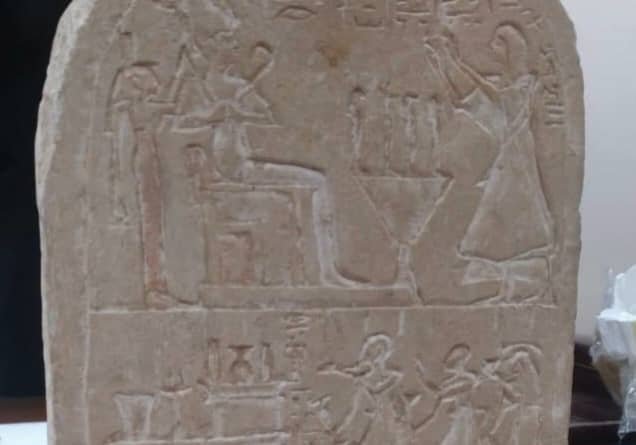The Egyptian authorities have repatriated 13 artefacts that were illegally taken out of the country and found in the United Kingdom and Germany, the North African nation’s Ministry of Tourism and Antiquities said.
The return of the items was the result of co-ordinated efforts by the Ministry of Tourism, the Ministry of Foreign Affairs, and the Ministry of Emigration and Egyptian Expatriates’ Affairs. The artefacts are temporarily housed in the Egyptian Museum in Cairo for restoration and preparation for exhibition.
“The return of this collection reflects the Egyptian state’s commitment, through all its institutions, to protecting its unique cultural heritage,” said Minister of Tourism and Antiquities Sherif Fathy.
Secretary-General of the Supreme Council of Antiquities Mohamed Ismail Khaled specified that the artefacts from the United Kingdom had been seized by the London police from members of an international smuggling network. They include a limestone funerary stele, a blue faience vessel and a canopic jar from the 18th Dynasty, part of a bronze crown depicting a feather, a snake and a ram (22nd–26th Dynasties), a funerary mask made of beads, and several amulets.
The Egyptian Embassy in Berlin received a notification from the authorities of the city of Hamburg expressing their willingness to return several artefacts held in the city’s museum after confirming that they had left the African country illegally. From Germany, a skull and a hand of an unidentified mummy were returned, along with an ankh amulet — a symbol of life in Ancient Egypt.
In July, the Belgian authorities handed over to Egypt a sarcophagus from the Ptolemaic period (4th–3rd centuries BC), seized in Brussels following an Interpol investigation. The artefact belonged to the noble Egyptian Pa-di-Hor-pa-Hererd and had been temporarily kept in the Royal Museum of Art and History. The handover was part of international efforts to repatriate cultural property illegally exported from their countries of origin.













